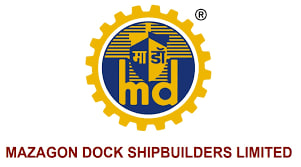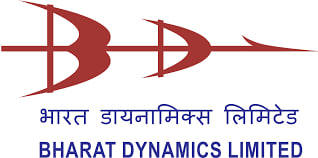India’s defence sector is robust, encompassing segments like military vehicles, missiles, naval vessels, and more. With a significant increase in budget allocations and exports, the sector anticipates substantial growth. Considerations before investing include government support, geopolitical stability, technological advancements, contracts, global trade, and regulatory compliance.
investing in defence stocks, with top companies like Hindustan Aeronautics Ltd and Bharat Dynamics Ltd leading in market cap. Evaluate companies based on product demand, competition, government support, compliance, and financial health. Taneja Aerospace and Aviation Limited stand out with an impressive 5-year CAGR of 67.41%.
India has one of the strongest military forces globally. The three primary market segments of the Indian defence sector are military fixed wing, missiles and missile defence systems and naval vessels and surface combatants. There are other popular segments as well, including military land vehicles, submarines, military rotorcraft, tactical communications, artillery and electronic warfare.
In the Union Budget 2023-24, the capital allocations with respect to modernisation and infrastructure development of the defence services have been raised to ₹1,62,600 crore, which is an increase of 6.7% compared to the previous year. Since 2017, defence exports from India have grown by 334%, and the country exports to more than 75 countries in the world.
Future of the defence industry in India:
The future of the defence industry in India looks promising, especially with the government’s focus on self-reliance and increased defence spending. By 2025, the Ministry of Defence aims for a $26 bn turnover in aerospace and defence manufacturing, including $5 bn in exports.
The Indian government is pivotal in promoting self-reliance and indigenous production in the defence sector. For instance, it has launched the ‘Make in India’ initiative, which encourages domestic production of defence equipment, and the ‘Defence Procurement Procedure 2020 ‘, which prioritises indigenous suppliers. This proactive stance is expected to significantly benefit domestic defence companies, providing a stable and conducive environment for investment.
The demand for defence equipment and services within India is expected to remain robust, driven by factors such as changing geopolitical scenarios. For instance, the increasing regional tensions have led to a higher demand for defence equipment. Other factors driving the demand include the need to replace obsolete equipment, internal security requirements, economic growth, and the entry of new companies into the market.
Defence Stocks: List of the Top Nifty Defence Sector Shares on NSE in India for the Long term (2025)
1). Hindustan Aeronautics Ltd (HAL): 
HAL is a defence and aerospace company established on 23rd December 1940 in Bangalore, Karnataka, in association with the then Government of Mysore. In March 1941, the Government of India became one of the shareholders in the company and subsequently took over its management in 1942.
This decades old large-cap defence company has the largest market share of 88.48% in the sector. Moreover, this defence sector stock has witnessed a growth of 140.75% in the past year and is currently trading closer to its 52-week high.
| LATEST IPO GMP | UPCOMING IPO 2025 |
HAL plays a key role in India’s defence initiatives as it is the only company that specializes in the manufacturing and maintenance of aircrafts and helicopters in India. As of August 2022, the order books of HAL have orders worth of 85,000 crores out of which orders worth of 45,000 crores are in the advanced stages of finalization. The key feature of the company is that it is completely debt-free.
2). Bharat Electronics Limited: 
Bharat Electronics was formed in 1954 in cooperation with CSF to cater to the needs of specialized electronic equipment of the Indian Defence Services. BEL is an aerospace and defence company wholly owned by the Indian state’s 9 factories and several regional offices spread across India.
Bharat Electronics Limited is a large-cap company that is involved in the design, manufacturing, and supply of electronics products and systems for defence and nondefense markets. Their primary products are weapon systems, fire control systems, radars, etc. The company’s net profit margin is 19.03%, and the ROI is 21.54%.
BEL has signed deals with prominent companies for the growth of their business including a contract worth 250 crores with the Ministry of Defence for supplying integrated Anti-Submarine Warfare systems for the defence forces of India.
3). Mazagon Dock Shipbuilders Ltd: 
MDSL is a major shipbuilding company in India that is mainly involved in constructing warships and submarines for the Indian Navy. The company has recently completed several high-profile projects, including the Scorpene-class submarines and the Visakhapatnam-class guided-missile cruisers. MDSL has a strong order book, including more than 7,000 crores including Coast Guard, ONGC, and export orders. The company’s focus on upgrading and capacity growth places it well to capitalize on future possibilities.
Located in Mumbai, Mazagon Dock Shipbuilders is a leading shipbuilding yard in India. Established as a private company in 1934, it came under government control in 1960. Since then, it has constructed 802 vessels, including 28 warships ranging from advanced destroyers to missile boats and seven submarines. The company specialises in constructing and repairing ships, submarines, and other engineering products.
MDL has also delivered various types of ships such as cargo ships, supply vessels, passenger ships, water tankers, multipurpose support vessels, tugs, and dredgers for customers in India and abroad. Additionally, MDL has fabricated and supplied jackets, main decks of wellhead platforms, jack-up rigs, and more.
4). Cochin Shipyard Ltd: 
Incorporated in 1972, Cochin Shipyard Limited (CSL) has become a leading player in the Indian shipbuilding and ship repair industry over the past three decades. CSL can construct and repair the largest vessels in India. The company is involved in building various types of vessels and providing repair and refitting services, including upgrades, periodic layup repairs, and extending the lifespan of ships.
This is a small-cap company that manufactures and repairs ships. Cochin Shipyard Limited’s net profit margin is 18.92%, and the ROI is 6.94%.
CSL is a significant shipping business in India that focuses on constructing different types of ships, including defense vessels. The company has a modern dock site and has completed several important projects for the Indian Navy and Coast Guard. CSL’s order book includes Received orders for a Hybrid SOV for the European market, Signed ship repair contracts for medium refit of 2 Indian Naval vessels valued at INR150 crores, order book stands at INR21,500 crores with significant orders in defense and commercial sectors, which is a significant project for the business. Additionally, CSL is constantly seeking possibilities in the business shipbuilder market.
Cochin Shipyard’s shipbuilding products include defence vessels such as aircraft carriers, hydrographic survey vessels, fast patrol vessels, offshore patrol vessels, and pollution control vessels. It also offers ship repair services for both defence and commercial ships, marine engineering training, and various other facilities.Cochin Shipyard’s shipbuilding products include defence vessels such as aircraft carriers, hydrographic survey vessels, fast patrol vessels, offshore patrol vessels, and pollution control vessels. It also offers ship repair services for both defence and commercial ships, marine engineering training, and various other facilities.
5). Bharat Dynamics Ltd: 
Founded on July 16, 1970, Bharat Dynamics Limited (BDL) is a PSU under the Ministry of Defence, headquartered in Hyderabad, Telangana. BDL serves as the manufacturing base for guided missile systems and related equipment for the Indian Armed Forces. The company operates four manufacturing units, with three located in Telangana (Hyderabad, Bhanur, and Ibrahimpatnam) and one in Andhra Pradesh (Visakhapatnam).
BDL is among the few companies globally with advanced facilities for producing and supplying guided missiles, underwater weapons, airborne products, and other allied defence equipment. The company also provides product life cycle support and refurbishment or life extension services for vintage missiles.
This small-cap company, BDL, designs and manufactures underwater guided weapon systems. It was established on 16th July 1970. This small-cap defence stock is showcasing good signs of profitability on the Tickertape Scorecard and has been able to generate double-digit returns in the past year.
6). Taneja Aerospace and Aviation Ltd: 
This small-cap defence company, Taneja Aerospace and Aviation, is involved in the manufacturing and sale of various parts and components to the aviation industry, providing services related to airfield and maintenance, repair and operations (MRO) and allied services. The company was established in 1988.
Taneja Aerospace and Aviation Ltd (TAAL) manufactures and supplies aerostructure composite parts, structures, and assemblies. TAAL also designs and builds airfield infrastructure. The company’s 5-Yr CAGR is 88.88%, and its net profit margin is 36.07%. As of 2 July 2025, the small-cap company had a market capitalisation of Rs. 1,575 cr.
Among other small cap defence stocks in India, this defence stock recorded 229.24% growth in the past year and is ranking highly on Profitability with a score of 8.7/10.
7). Paras Defence and Space Technologies Ltd: 
Paras Defence and Space Technologies Limited was incorporated in 2009 and is headquartered in Navi Mumbai, Maharashtra, India. The company has been involved in various defense and space projects in India, including the Indian Space Research Organisation’s (ISRO) Chandrayaan-2 mission, which aimed to land a rover on the moon.
This small-cap company, Paras Defence and Space Technologies, was founded on 16th June 2009. The company is into developing systems for defence and space applications. It operates under five segments – Defense and Space Optics, Defense Electronics, Heavy Engineering, Electromagnetic Pulse Protection Solutions and Niche Technologies.
This small-cap stock is showing good signs of profitability on the Tickertape Scorecard and has grown 32.53% in one year.
Things to consider before investing in defence stocks in India:
- Volatile: Defence stocks can go up whenever there is economic uncertainty and can go down at times of peace. So they are highly volatile. They are cyclical stocks.
- Financial Performance: Analyse the financial performance of defence sector companies before investing in their stocks. Revenue growth, profitability, and debt levels can give insights into a company’s financial health and potential returns.
- Backed by the government – Being backed by the government and involving national security reasons, these stocks can be evergreen.
- Government strategies and cash amounts for defense: Monitor the government’s focus on army upgrades, purchase plans, and spending outlays as they directly affect demand.
- International Geopolitical Environment: Changes in the worldwide geopolitical environment can affect the defence sector. You should take into account elements such as global relations, conflicts and defence partnerships, which could influence the need for defence equipment and services.
- Technological Advancements: Keeping track of technological advancements in the defence sector is vital. Companies that invest in research and development and stay ahead in innovation are likely to have a competitive edge in the market.
Advantages of investing in defense stocks:
Long-Term Growth Potential: With increasing geopolitical tensions and the constant need for defense, these stocks may offer long-term growth opportunities, capturing the attention of investors looking for sustainable growth avenues.
Technological Innovation: The defense sector often drives technological advancements, which could lead to innovations that have applications beyond defense, attracting investors interested in cutting-edge technology.
Stability and Resilience: Defense stocks often demonstrate stability, given consistent government contracts and demand for military equipment, which can be an attractive trait for investors seeking stability in uncertain markets.
Global Reach: Defense companies often have a global presence, tapping into international markets and potentially offering investors exposure to diverse economies and geopolitical landscapes.
Diverse Market Segments: Defense companies operate across various segments such as aerospace, cybersecurity, and technology, providing investors with exposure to diverse markets and potential revenue streams.
How To Invest in Defence Stocks?
Investing in defence stocks via Angel One is easy. Simply follow these steps:
- Log in to your Angel One account.
- Click on the search icon and look for your desired defence stock.
- Now, place your buy order. Simply click on the ‘Buy’ button, enter your desired quantity, and select the order type.
- To complete your transaction, click on the ‘Buy’ button.
If you don’t have a Demat account with Angel One, you can open one for free online within minutes.
Conclusion:
The Indian defence sector stocks are poised for significant expansion in the next few years, which creates opportunities for investors. Investors might improve their expertise in the industry by thoroughly examining specific firms.
Understanding the essential parameters of these organisations is critical for developing effective investment strategies. With thorough study and intelligent techniques, investors may obtain exposure to this dynamic market. Remember that defence stocks are not without risk. Do your research thoroughly before making any investment selections.

